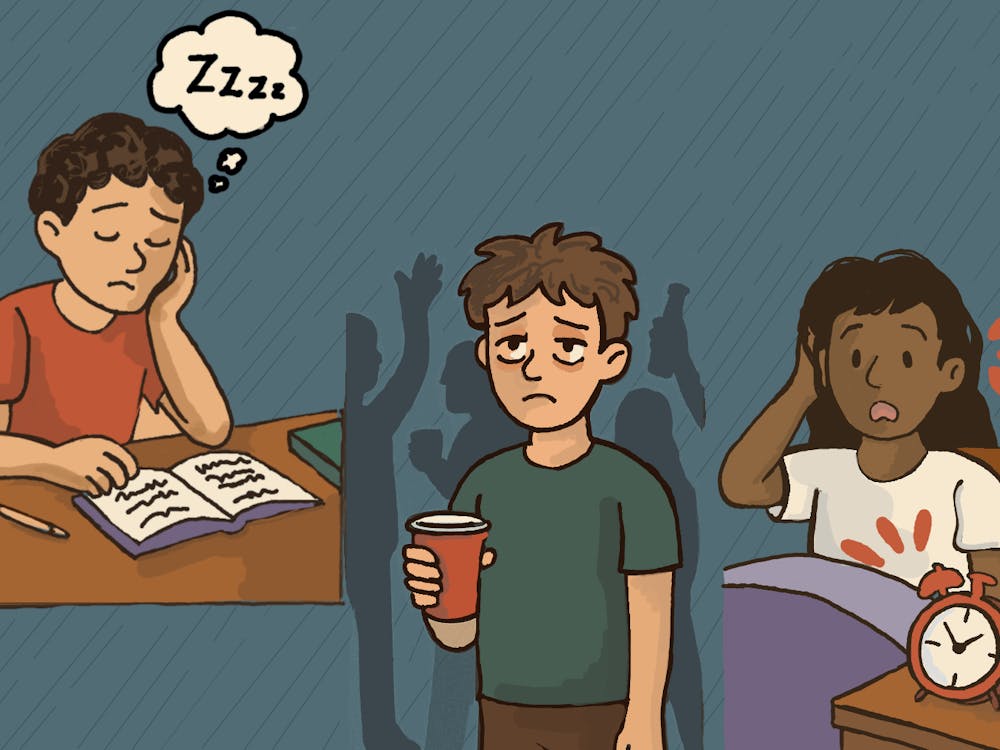Run a Google search on "Edwin A. Alderman" and the first Web site that appears is the homepage of Edwin A. Alderman Elementary School in Wilmington, N.C. Alderman Elementary is the home of the "Soaring Eagles," a mascot choice of which former Attorney General John Ashcroft would be very proud.
Get it? Remember? He wrote a song called "Let the Eagle Soar" and then (this was really funny) sang it a . . .
Never mind. Back to the history.
So, you might be asking yourself: Alderman Elementary School? We have an Alderman Library. I've been there once or twice this semester to study (read: eat a croissant from the café and check my e-mail). Is there a connection? I'm glad you asked.
Indeed, the Edwin A. Alderman of Alderman Elementary and Alderman Library are one and the same. Alderman served as president of the University of North Carolina-Chapel Hill from 1896-1900 before moving to Tulane and later taking the helm here at the University in 1904 -- hence the elementary school in North Carolina christened in his honor.
That explains the elementary school-library connection. But who was this man, this Edwin for whom our library is named?
Alderman came to Charlottesville to serve as the University's first president. Thomas Jefferson, always distrustful of central authority, had made the Board of Visitors the governing body of the University rather than investing power in a single president or chancellor. By the early 20th century, however, it was apparent that the Board, with its periodic meeting schedule, would be unable to handle the myriad tasks of fundraising, endowment building and day-to-day governance which defined modern university administration. Many of those responsibilities had fallen to the chair of the faculty in the years before the Board created the office of the presidency, leading to an immediate tension between Alderman and traditionalist elements within the faculty from the very beginning of his tenure in office.
That Alderman should be at odds with conservatives and traditionalists was no surprise. Alderman was an ardent Progressive, part of a movement which sought to rationalize and increase the importance of education as a solution to the public challenges of the early 1900s. That meant transforming the University from a Southern, provincial college of high local repute into a national institution -- no small task, but one which Alderman sought to tackle head on.
The University of Virginia which Alderman joined in 1904 was a relatively elitist, aristocratic institution. I know the notion that the University could be elitist is utterly shocking, but, alas, it was true, and Alderman's agenda focused largely on the project of democratizing higher education in general and the University in particular. Consequently, Alderman embarked on a series of reform measures, many of which were surprisingly (and impressively) modern, even by 21st-century standards.
As early as 1905, Alderman began to coordinate efforts to improve public education across the Commonwealth, particularly at the high school level. In 1909, Alderman mandated that a four-year high school degree was necessary for admission. Largely as a result of his efforts, between 1904 and 1910, attendance at Virginia high schools increased threefold, funding for public education increased rapidly and the number of teachers in Virginia schools quadrupled.
I know, I find it incredible too, but there was a time when the state increased funding for higher education (insert angry stare in the general direction of Richmond here).
Alderman also sought to democratize public education by providing financial support for those who might otherwise be unable to attend a college or university. At a school whose first class in 1825 had been a microcosm of aristocratic, wealthy Southern gentry, this was quite an initiative. A primitive financial aid program, Alderman's plan centered on the creation of a loan fund through which "deserving, capable and needy young men" could "come to this institution to get its training."
"Wait a minute," you might say. "Young men?" How progressive could Alderman be if he limited higher education to men? You might be surprised.
At a university which didn't co-educate until 1970, Alderman was relatively vocal about his conviction that higher education ought to be open to women as well as men. While Alderman never made a concerted effort to change the all-male character of the University, he said in a 1906 letter to Bernice Pollack that he felt "the daughters of Virginia have as good a right in the University as the songs, and I shall continue so to think."
What? Allow womenfolk into Mr. Jefferson's University? A bold idea for 1906, but Alderman's egalitarian ideas on gender were a key component of his progressive ideology.
Plus, Edwin was a real ladykiller.
Wait, what? Who wrote that?
Gender equality, financial aid, higher educational standards -- some things to think about the next time you're enjoying a refreshing iced tea in Alderman Café.
So here's a toast to my good friend and your's, Edwin Alderman. Wahoowa, Edwin. Wahoowa.
Dan's column runs bi-weekly on Wednesdays. He can be reached at danyoung@cavalierdaily.com.






